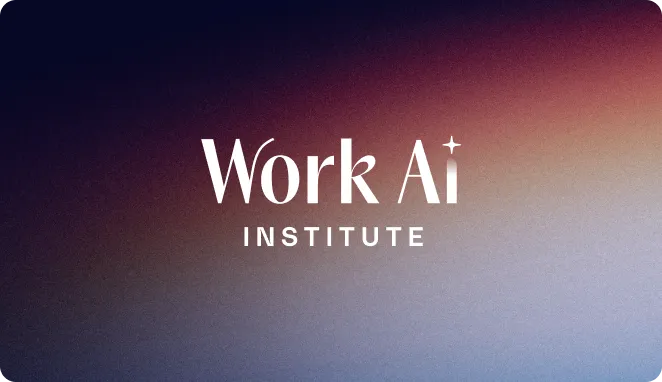- Personalization in enterprise search tailors search results to individual users based on their search history, preferences, and behavior, improving productivity and user experience.
- Implementing effective personalization requires accurate data, balancing privacy concerns, and using machine learning and AI to analyze user behavior and preferences.
- Glean enhances workplace search personalization with AI-powered capabilities, indexing tools, and an enterprise knowledge graph, providing tailored search experiences and improving employee productivity.
Workplace search personalization is a critical component of modern enterprise search systems. Personalization refers to the ability of search engines to tailor search results to individual users based on their search history, preferences, and behavior. This allows users to find the most relevant content quickly and easily, improving their productivity and overall experience.
Personalization is particularly important in enterprise search, where users often need to sift through vast amounts of data to find the information they need. By tailoring search results to individual users, enterprise search systems can save time and reduce frustration, making it easier for employees to do their jobs effectively. This is especially true for workplace search, which allows employees to search across multiple applications and data sources from a single interface.
However, implementing effective personalization in enterprise search can be challenging. It requires a deep understanding of user behavior, as well as sophisticated algorithms and machine-learning techniques. In addition, personalization must be balanced with other factors, such as relevance, accuracy, and security. Despite these challenges, the benefits of personalization make it a critical area of focus for any enterprise search system.
Understanding enterprise search personalization
Enterprise search personalization is the process of tailoring search results to individual users based on their search history, preferences, and behavior. By providing personalized search results, enterprise search engines can help employees find the information they need more quickly and efficiently. In this section, we will discuss the benefits, challenges, and key strategies of enterprise search personalization.
Benefits of Search Personalization
Personalized enterprise search can offer a range of benefits to organizations. First, it can improve employee productivity by reducing the time spent searching for information. Second, it can increase employee satisfaction by providing relevant results tailored to their needs. Third, it can help organizations make better use of their data by surfacing information that might otherwise go unnoticed. Finally, it can improve collaboration by making it easier for employees to find and share information.
Challenges in Search Personalization
While there are many benefits to enterprise search personalization, there are also some challenges to consider. One of the biggest challenges is the need for accurate and up-to-date data. Without accurate data, search results may be irrelevant or incomplete. Another challenge is the need to balance personalization with privacy concerns. Organizations must ensure that they are not collecting or using personal data in a way that violates privacy laws or employee trust.
Key Startegies of Search Personalization
To implement successful enterprise search personalization, organizations should consider the following key strategies:
- Understand user needs and preferences: Organizations should take the time to understand the needs and preferences of their users to ensure that search results are relevant and useful.
- Use machine learning and AI: Machine learning and AI can help organizations analyze user behavior and preferences to provide more accurate and personalized search results.
- Balance personalization with privacy: To ensure that personalization does not violate privacy laws or employee trust, organizations should be transparent about their data collection and use policies.
- Continuously monitor and improve: To ensure that search results remain relevant and useful, organizations should continuously monitor and improve their search algorithms and data collection processes.
By following these key strategies, organizations can implement successful enterprise search personalization and reap the benefits of more efficient and effective search results.
Embracing workplace search personalization
As we strive to improve employee productivity, we must embrace workplace search personalization. Personalized search results are tailored to each employee's needs and preferences, resulting in faster and more efficient searches. In this section, we will discuss the role of workplace search personalization in employee productivity and implementation best practices.
Role in employee productivity
Workplace search personalization plays a crucial role in improving employee productivity. By providing personalized search results, employees can quickly find the information they need to complete their tasks. This reduces the time spent searching for information and increases the time spent on actual work. Additionally, personalized search results can help employees discover new information that they may not have found otherwise, leading to new ideas and solutions.
Implementation best practices

To implement workplace search personalization effectively, we must follow best practices. Here are a few implementation best practices to consider:
- Collect relevant data: To provide personalized search results, we must collect relevant data from employees. This includes search history, frequently accessed documents, and preferred search terms. By collecting this data, we can create a personalized search experience for each employee.
- Ensure privacy: It is essential to ensure employee privacy when collecting data for personalized search results. We must be transparent about the data we collect and how it is used. Additionally, we must take appropriate security measures to protect employee data.
- Strict permissions enforcement: The platform should only show you the information you already have permission to access in the source application. If any permissions change, the search results reflect those changes immediately.
- Test and refine: Implementing workplace search personalization is an ongoing process. We must continuously test and refine our search algorithms to ensure that they provide relevant and accurate results. Additionally, we must gather feedback from employees to identify areas for improvement.
By embracing workplace search personalization and following implementation best practices, we can improve employee productivity and create a more efficient and effective workplace.
How enterprise search platforms like Glean enhance workplace search personalization
At Glean, we understand that every employee has unique search requirements. Our enterprise search platform uses a suite of powerful AI capabilities, indexing tools, and the enterprise knowledge graph to deliver best-in-class search relevance. By leveraging AI and machine learning, Glean understands the context of searches and personalizes the search results to meet the specific needs of each employee.
Glean's workplace search platform enhances personalization by providing a tailored search experience for each user. Our AI-powered search assistant pulls together information from dozens of disparate applications to help workers find exactly what they need. By utilizing a deep understanding of all your company's content, employees, and activity, Glean helps workers find the information they need across all applications in every situation.
Looking to get started with an enterprise-ready search solution with out-of-the-box personalization capabilities? Get a Glean demo today!









